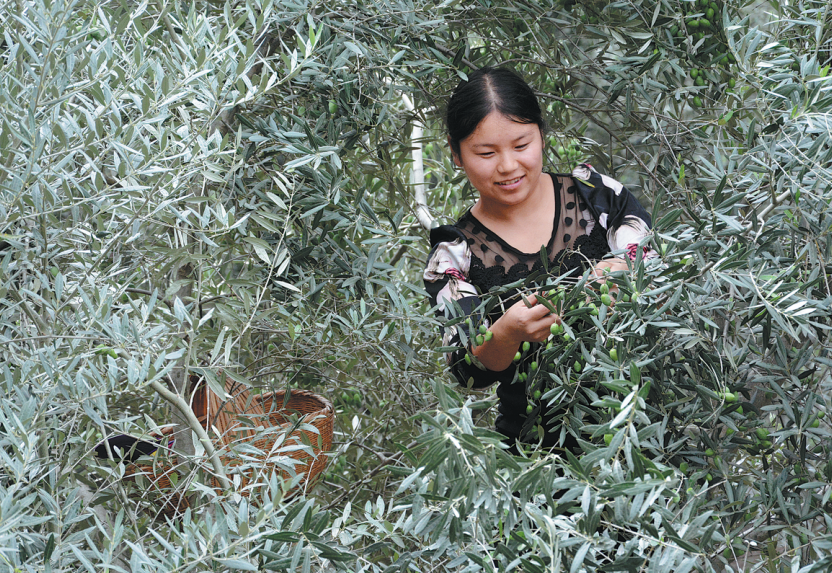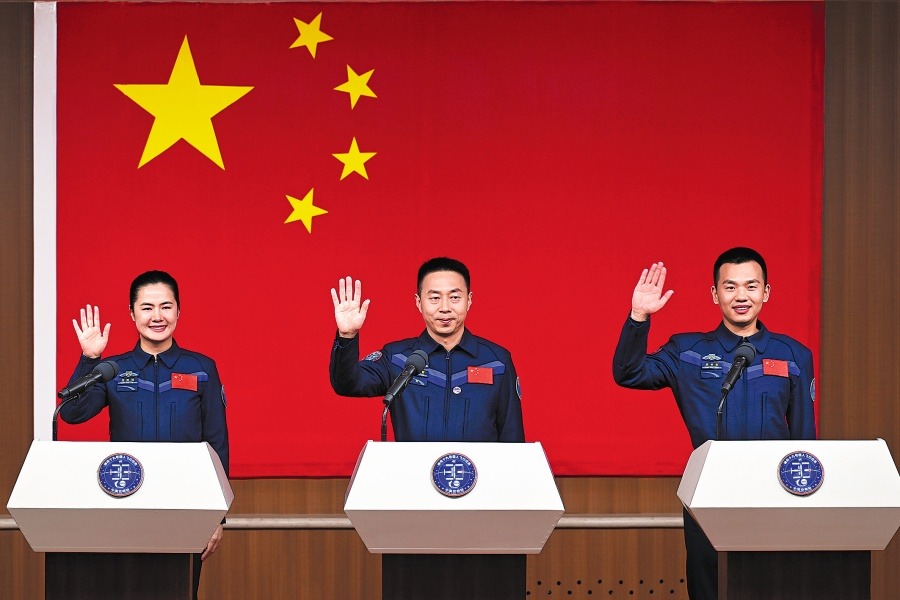Villagers branch out to embrace olive oil riches


The processing industry is helping to raise rural incomes. Hou Liqiang reports from Longnan, Gansu.
Though still regarded as a newcomer to China, the olive tree is nicknamed the "premier's tree" because Premier Zhou Enlai introduced the Mediterranean native in 1964.
That year, Zhou not only promoted the importation of about 10,000 olive trees from Albania, but also planted one in Kunming, capital of Yunnan province.
Now, the tree has become a source of prosperity in Longnan city, Gansu province. Its fruit has helped lift thousands of residents out of poverty as they, with local government support, fulfill Zhou's wish that the tree-whose fruit contains an oil rich in healthy antioxidants-should benefit rural people.
When the tree was introduced, Xu Weiying, then a researcher with the Chinese Academy of Forestry, was tasked with leading an experimental plantation.
Longnan was one of the places Xu visited in her quest to find areas suitable for large-scale cultivation. However, her visits to the mountain-encompassed city kick-started the continuing story of Liu Yuhong's family and the olive tree.
After being introduced to Longnan in 1975, experimental cultivation of the tree quickly proved successful. In the 1990s, in response to local government calls, many people, including Liu's parents, took unpaid sabbaticals from their jobs to grow olive trees.
None of them gained any financial benefit from the tree for a long time, though, as nobody purchased the fruit for processing, Liu said.
After Xu met Liu's father, who worked for the local procuratorate, and mother, a hospital physician, she encouraged them to start a processing plant to address their lack of income, Liu said.
She added that even though they had no idea about the future of the olive oil industry, her parents decided to follow Xu's suggestion as they thought it would be good to "green" the local mountains with the tree and people should benefit financially to sustain their cultivation efforts.























